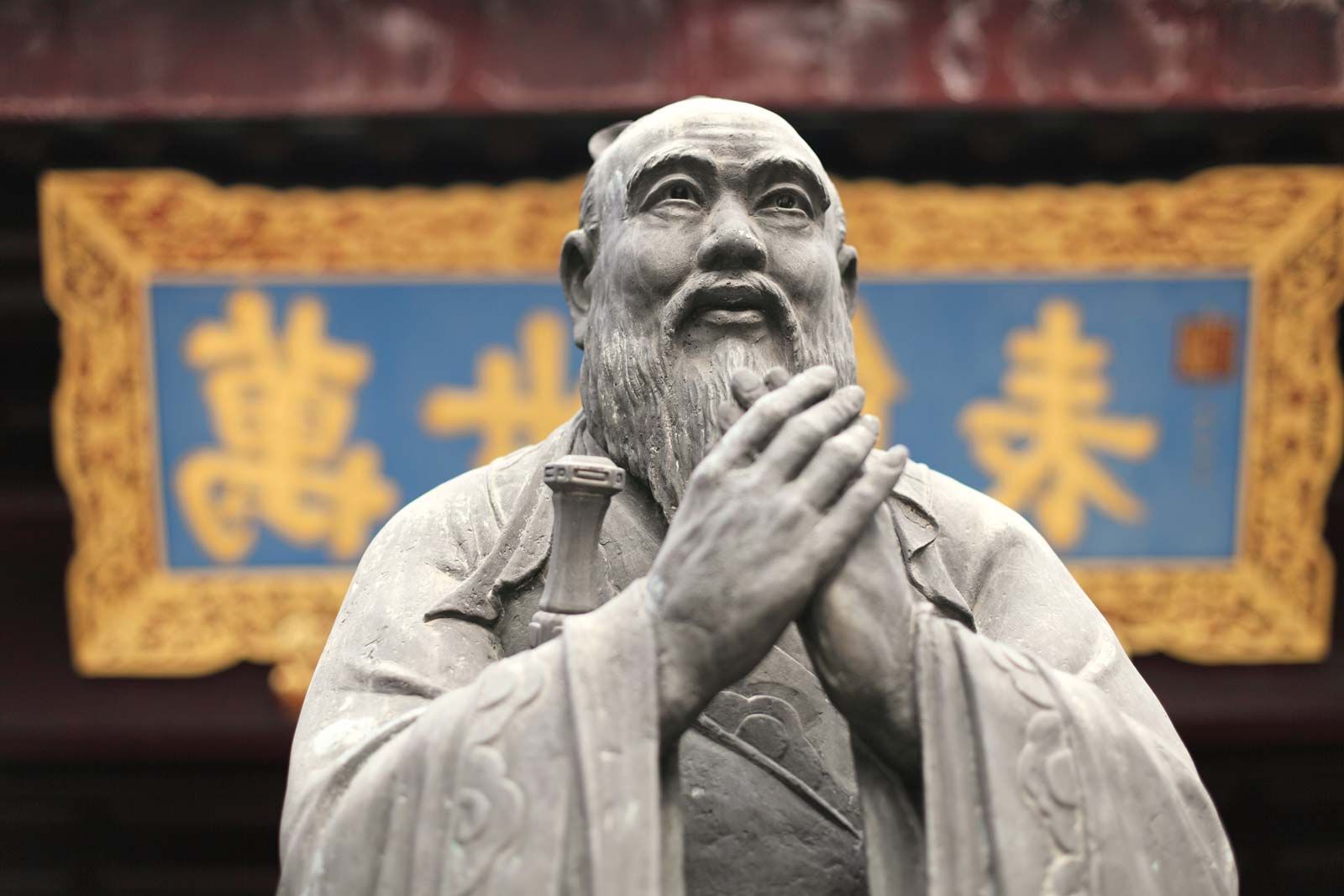
Confucianism is more than just an ancient philosophy; it's a way of life that has shaped cultures and societies for centuries. Originating in China, this belief system emphasizes moral integrity, family loyalty, and respect for elders. But what makes Confucianism so enduring? Confucius, the founder, taught principles that promote harmony and social order, which remain relevant today. From its rituals to its influence on education, Confucianism offers a rich tapestry of wisdom. Whether you're curious about its core teachings or its impact on modern society, these 36 facts will provide a deeper understanding of this timeless philosophy. Ready to dive in? Let's explore!
Origins of Confucianism
Confucianism, a philosophical and ethical system, has shaped Chinese culture for centuries. Let's explore some fascinating facts about its origins.
- Confucianism was founded by Confucius, a Chinese philosopher born in 551 BCE.
- Confucius' real name was Kong Qiu, and he is also known as Kong Fuzi.
- The teachings of Confucius were compiled by his disciples in a text called the Analects.
- Confucianism emerged during the Spring and Autumn period of Chinese history.
- Confucius was deeply influenced by the Zhou Dynasty's rituals and traditions.
Core Principles of Confucianism
Confucianism emphasizes moral integrity, social harmony, and respect for hierarchy. Here are some key principles that define this philosophy.
- Ren (benevolence) is the central virtue in Confucianism, emphasizing kindness and humanity.
- Li (ritual propriety) refers to the proper conduct in social interactions and ceremonies.
- Xiao (filial piety) stresses the importance of respecting and honoring one's parents and ancestors.
- Yi (righteousness) involves doing what is morally right and just.
- Zhi (wisdom) is the ability to make sound judgments and decisions.
Influence on Chinese Society
Confucianism has had a profound impact on Chinese society, shaping its values, institutions, and daily life.
- The Imperial Examination System was based on Confucian texts and principles.
- Confucianism influenced the structure of the Chinese family, emphasizing hierarchical relationships.
- The philosophy played a key role in the development of Chinese education.
- Confucian values are reflected in traditional Chinese festivals and rituals.
- Confucianism has shaped the legal system in China, promoting justice and fairness.
Confucianism and Governance
Confucianism has also played a significant role in Chinese governance, advocating for ethical leadership and moral governance.
- Confucius believed that rulers should lead by example and govern with virtue.
- The concept of the Mandate of Heaven was influenced by Confucian thought.
- Confucianism advocates for a meritocratic system, where officials are chosen based on ability and virtue.
- The philosophy emphasizes the importance of education for effective governance.
- Confucianism promotes the idea of moral rectitude in leaders.
Confucianism in Modern Times
Despite its ancient origins, Confucianism continues to influence modern society in various ways.
- Confucian values are still evident in East Asian cultures, including Korea, Japan, and Vietnam.
- The philosophy has seen a resurgence in China's educational system.
- Confucianism is studied and respected in academic circles worldwide.
- Modern leaders often reference Confucian principles in political discourse.
- Confucianism has influenced contemporary business ethics in East Asia.
Confucianism and Religion
While often considered a philosophy, Confucianism also has religious aspects that have shaped spiritual practices.
- Confucianism includes ancestor worship, a practice of honoring deceased family members.
- The philosophy has temples dedicated to Confucius, where rituals and ceremonies are performed.
- Confucianism coexists with other religions like Buddhism and Taoism in China.
- Some view Confucius as a sage or spiritual guide rather than a deity.
- Confucianism emphasizes moral cultivation and self-improvement as spiritual practices.
Confucianism's Global Impact
Confucianism's influence extends beyond China, impacting cultures and societies around the world.
- Confucian principles have shaped East Asian educational systems.
- The philosophy has influenced Western thinkers and scholars.
- Confucianism has been integrated into global ethical discussions.
- The teachings of Confucius are translated into numerous languages.
- Confucianism has inspired international conferences and academic research.
Fun Facts About Confucius
Let's end with some interesting tidbits about Confucius himself.
- Confucius loved music and believed it played a crucial role in moral education.
The Last Word on Confucianism
Confucianism isn't just ancient wisdom; it's a living philosophy. It shapes societies, influences governments, and guides personal behavior. From its origins in China to its global impact today, Confucianism offers timeless lessons on respect, duty, and harmony. Understanding these principles can enrich our lives and broaden our perspectives.
Confucius emphasized the importance of family, education, and moral integrity. These values remain relevant, providing a framework for ethical living. Whether you're a student, a professional, or just curious, exploring Confucianism can offer valuable insights.
So, next time you hear about Confucianism, remember it's more than just a historical footnote. It's a vibrant, enduring philosophy that continues to inspire and guide millions around the world. Dive into its teachings, and you might find wisdom that resonates with your own life.
Was this page helpful?
Our commitment to delivering trustworthy and engaging content is at the heart of what we do. Each fact on our site is contributed by real users like you, bringing a wealth of diverse insights and information. To ensure the highest standards of accuracy and reliability, our dedicated editors meticulously review each submission. This process guarantees that the facts we share are not only fascinating but also credible. Trust in our commitment to quality and authenticity as you explore and learn with us.


